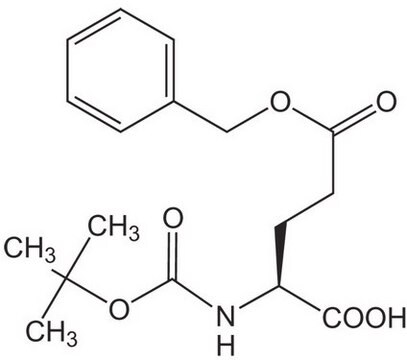840858P
Avanti
16:0-18:2 PA
1-palmitoyl-2-linoleoyl-sn-glycero-3-phosphate (sodium salt), powder
Synonyme(s) :
1-hexadecanoyl-2-(9Z,12Z-octadecadienoyl)-sn-glycero-3-phosphate (sodium salt); PA(16:0/18:2(9Z,12Z))
About This Item
Produits recommandés
Essai
>99% (TLC)
Forme
powder
Conditionnement
pkg of 1 × 100 mg (840858P-100mg)
pkg of 1 × 25 mg (840858P-25mg)
Fabricant/nom de marque
Avanti Research™ - A Croda Brand 840858P
Type de lipide
phospholipids
cardiolipins
Conditions d'expédition
dry ice
Température de stockage
−20°C
Chaîne SMILES
[H][C@@](COP([O-])(O)=O)(OC(CCCCCCC/C=C\C/C=C\CCCCC)=O)COC(CCCCCCCCCCCCCCC)=O.[Na+]
InChI
1S/C37H69O8P.Na/c1-3-5-7-9-11-13-15-17-18-20-22-24-26-28-30-32-37(39)45-35(34-44-46(40,41)42)33-43-36(38)31-29-27-25-23-21-19-16-14-12-10-8-6-4-2;/h11,13,17-18,35H,3-10,12,14-16,19-34H2,1-2H3,(H2,40,41,42);/q;+1/p-1/b13-11-,18-17-;/t35-;/m1./s1
Clé InChI
IYNPOFCKGPJAFU-HQFKUYMNSA-M
Description générale
Application
Actions biochimiques/physiologiques
Conditionnement
Informations légales
Code de la classe de stockage
11 - Combustible Solids
Faites votre choix parmi les versions les plus récentes :
Certificats d'analyse (COA)
Désolés, nous n'avons pas de COA pour ce produit disponible en ligne pour le moment.
Si vous avez besoin d'assistance, veuillez contacter Service Clients
Déjà en possession de ce produit ?
Retrouvez la documentation relative aux produits que vous avez récemment achetés dans la Bibliothèque de documents.
Notre équipe de scientifiques dispose d'une expérience dans tous les secteurs de la recherche, notamment en sciences de la vie, science des matériaux, synthèse chimique, chromatographie, analyse et dans de nombreux autres domaines..
Contacter notre Service technique








